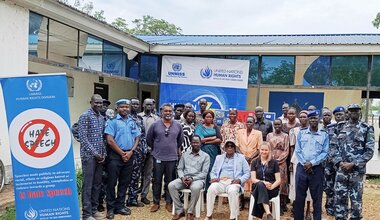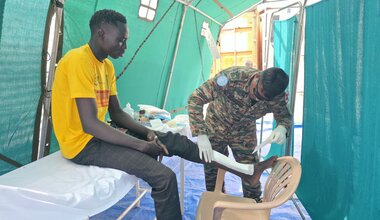Political parties in Aweil East ready to implement “paramount” peace
A rapprochement forum has concluded in Wanyjok town in Aweil East with a commitment from political leaders to reconcile and work together in accordance with the revitalized peace agreement.
For the 50 participants, drawn from four different political parties, peace is paramount for the security and development of the country.
“For us to open a new chapter, forgiveness is needed,” says Abuor Gordon, a female representative of the dominant Sudan People’s Liberation Movement, SPLM. “South Sudan has gone through difficulties.”
“We should have one view [and be united], whether we are ordinary citizens, military or politicians, for the sake of peace,” says Achoul Garang Deng, a woman belonging to the Sudan African National Union Party. She thinks the two-day forum was fruitful because it taught attendees how to resolve their political differences peacefully.
Martin Kiir Majok, a member of the Sudan People’s Liberation Movement, is adamant that no efforts can be spared to secure peace.
“We are ready to pay whatever price is needed for peace to prevail, even if that means that we have to sacrifice positions in the government,” he says.
The two-day reconciliatory meeting, organized by the Civil Affairs Division of the UN Mission in South Sudan, aimed to promote harmonious relations between political actors in Aweil East, also looked at the bigger picture.
“I think it is a forum for all the political actors including the political parties here, to reflect on the peace agreement itself,” says Khalif Farah, who serves with the UN peacekeeping mission. “Given the lack of resources, what can we do at our level to implement peace?”
The deputy governor of Aweil East, William Ater Lual, welcomed the extension of the pre-transitional period.
“The additional six months are an opportunity for the country’s leaders to get the peace process back on track, he says. “If anyone says let’s delay the formation of the transitional government for some months and there is lasting peace [as a result’, we must go for that.”
Apart from stability, forum participants expressed their belief that durable peace will lead to fair distribution of resources, a restored social fabric and the professionalization of the army.
 UN
UN United Nations Peacekeeping
United Nations Peacekeeping





